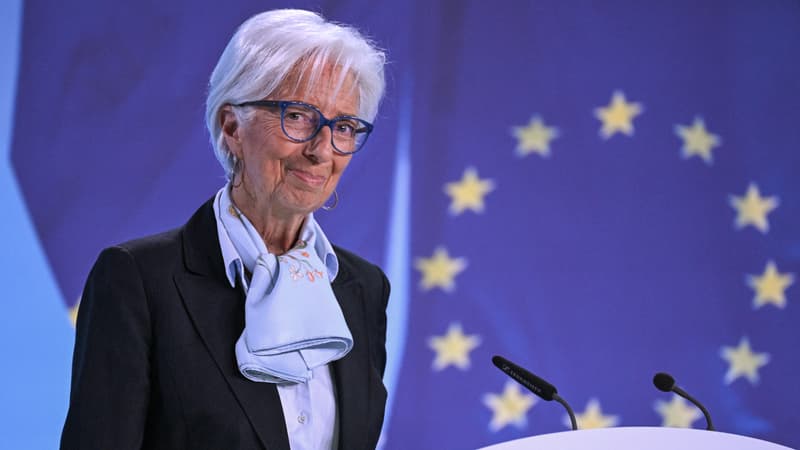The ECB is not surprising and confirms analysts’ forecasts. Christine Lagarde, its president, announced on Thursday the reduction of its official interest rates by 25 basis points (i.e. 0.25%), for the second consecutive meeting, after a first reduction in June.
The deposit rate, one of Frankfurt’s three main key rates, is therefore rising from 3.75% to 3.5%. The marginal lending rate is rising from 4.5% to 4.25% and the refinancing rate is rising from 4.25% to 4%.
Europe is a pioneer in this area, as the US Federal Reserve has not yet restarted a downward cycle, after having been the first to raise its rates in 2021 in the face of a spike in inflation.
One way for the ECB to revive the European economy: the 20 eurozone countries recorded growth of 0.2% in the second quarter (instead of the 0.3% initially estimated by Eurostat). The momentum is not as good as on the other side of the Atlantic (+2.8% year-on-year in the second quarter).
Inflation remains above 2%
The European Central Bank is, however, keeping a close eye on inflation figures: prices rose by 2.2% in the euro zone, according to the latest figures published for August. The European Central Bank is increasingly moving closer to the mandate of price stability of around 2%, as claimed by Frankfurt.
But “core” inflation, once adjusted for volatile items such as energy, food, alcohol and tobacco, remains higher and will be more closely scrutinised by the authorities: it was 2.8% in August. It is the sharp fall in energy prices in recent months that has triggered the deflation.
Let us remember that France is in the middle, with an inflation rate of 2.2% according to harmonised European calculation methods.
Source: BFM TV


